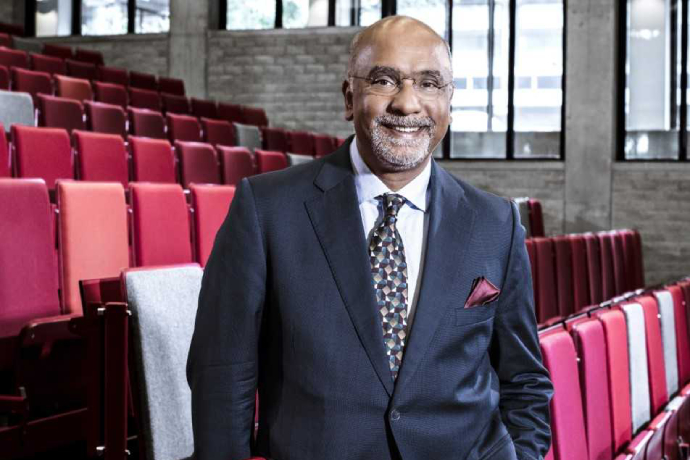Universities should focus on recruiting more scientists with a migration background, says Rector Magnificus Vinod Subramaniam. During a webinar held last night by the Royal Netherlands Academy of Arts and Sciences on the topic of anti-racism at universities, the Rector called for national targets.
Students with a migration background have few role models at university, Subramaniam explained in the webinar. It is an issue that he observes even at his own university; of the academic staff at VU Amsterdam, only 8 percent is of non-Western descent and only 1.4 percent are second-generation immigrants. Among students an impressive one out of three has a migration background and 14.5 percent is second generation.
“So there is a discrepancy”, concluded Subramaniam. Universities should try harder to recruit personnel with a migration background, he said, in the same way that extra effort is being made to recruit more women in science.
Plan of action
To increase the number of female professors, universities have been working hard over the last ten years to use various target figures. Subramaniam: “That helped.” He even raised the question of whether a national plan of action should be established for members of staff with a migration background. “I would say it should.”
One of the other speakers during the Zoom meeting of the Royal Netherlands Academy of Arts and Sciences was former VU Amsterdam student Mitchell Esajas. He is one of the founders of The Black Archives and was also involved in the recent protests against racism.
During his studies, he observed that the Netherlands’ colonial past was barely mentioned and that there was little room for diversity. He thinks universities should begin a process of ‘decolonization’, meaning that they need to carefully review course curricula to find out which perspectives are lacking and which assumptions are embedded in the material and teachings.
Someone attending the meeting asked a question about Thierry Baudet, who supposedly wants to ‘purify’ universities. Isn’t decolonization of universities the same thing? Isn’t it ‘the purification of universities based on ideological grounds with the intention of sidelining scientific work’?
‘Full stop’
Moderator Judi Mesman seemed embarrassed to even read the question out loud. Esajas calmly answered that he found it difficult to take a question seriously that equates the decolonization of universities to the purification ideals of a far-right politician. “So no, of course it’s not the same. Full stop.”
Mesman, Dean at Leiden University College The Hague, explained that this type of debate gets even more intense at her college than elsewhere, due to the international student population that forms a tight-knit community and has an interest in liberal arts (also known as humanities and social sciences).
She observed a practical issue with the ‘decolonization’ of the curriculum. The process amounts to more than adding a few books or articles written by black authors to the reading list. When you add new ideas to the curriculum, lecturers need the time to really look into the subject matter, or they will not be able to provide quality education on the subject.
All speakers emphasized that awareness of the problem is a step forward, as long as it doesn’t end there. It helps when people in powerful positions speak out against racism, said Esajas. Then others will feel less afraid to make their voices heard. Subramaniam added that courageous conversations are needed.
Conceptual confusion
Mesman is well aware of the fact that those conversations are not always easy in the world of academia. Activist students and students with a personal, emotional stake in the matter tend to use terms that have blown over from the US, such as ‘institutional racism’ and ‘microaggression’. These terms make total sense to them. “But what do academics see? Fuzzy definitions, conceptual confusion…”
That’s why, as an academic, you need to learn when to keep your mouth shut, said Mesman. We can all discuss these terms and provide nuance as befits academic staff at a university. “But it doesn’t help when students and employees mainly want to be seen and heard.”
